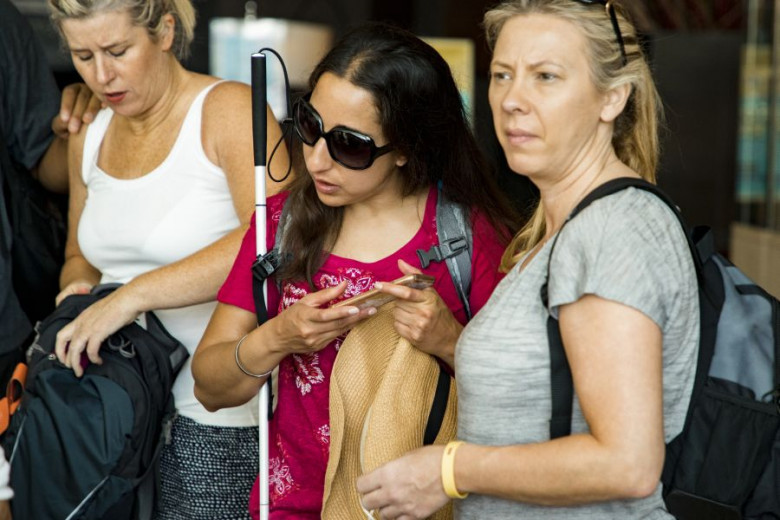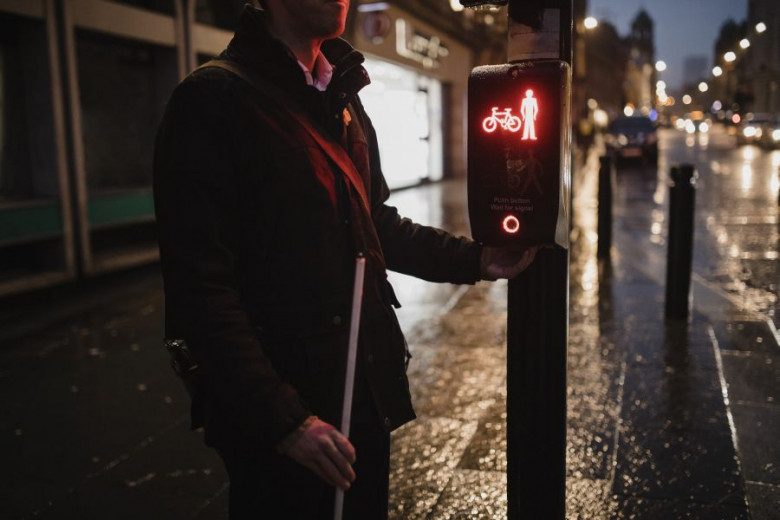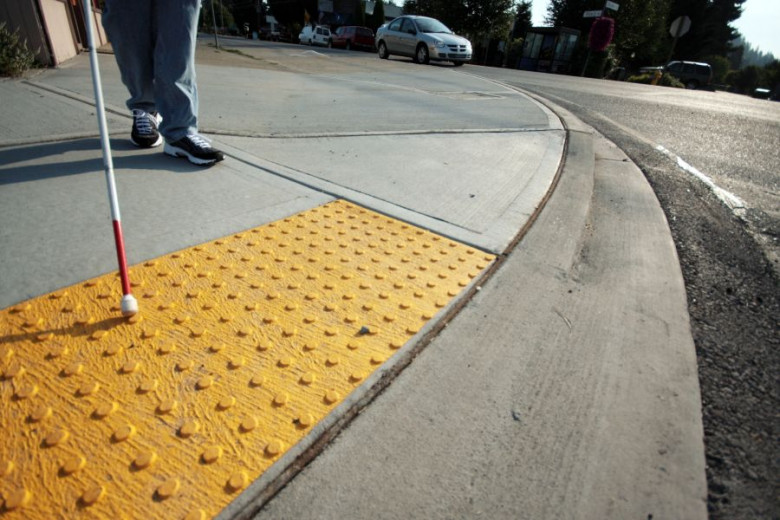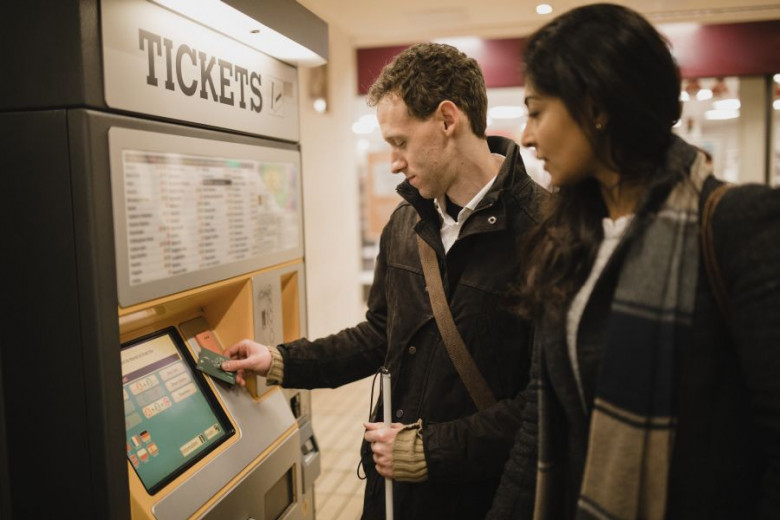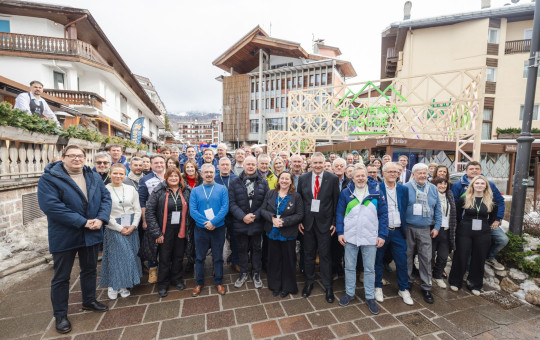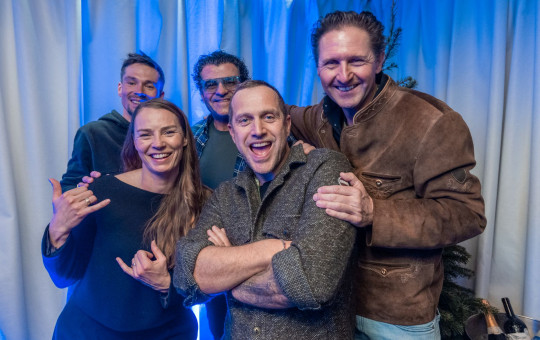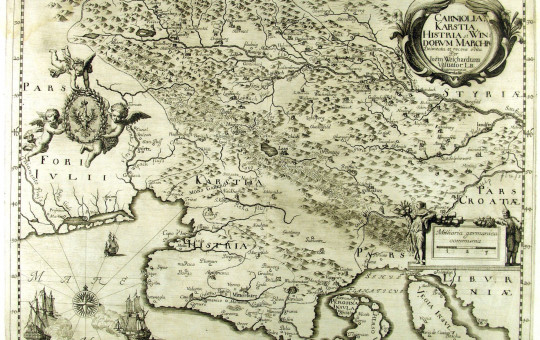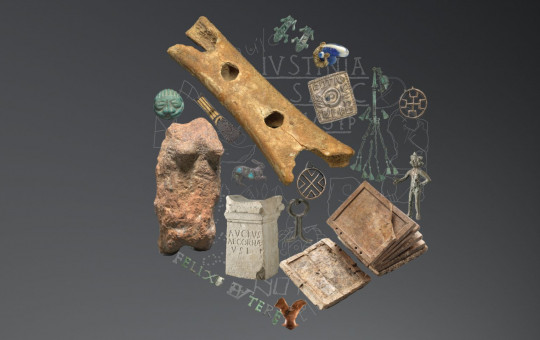Date: 26. February 2020
Time to read: 4 min
Around the world, the number of people with vision impairment is growing. According to the World Health Organization (WHO), "Globally, at least 2.2 billion people have a vision impairment or blindness, of whom at least 1 billion have a vision impairment that could have been prevented or has yet to be addressed." In Slovenia, eight to ten thousand people suffer from severe vision impairment, and a further thirty to forty thousand have moderate vision impairment.
Humans have five senses, but sight is the most important one for detecting and receiving information from the environment. It is a fact that information is predominantly visual, and people rely on their sight most of the time. One can only imagine how resourceful blind and partially sighted people, who are otherwise completely healthy and capable, must be. People who can see often fail to realise how much blind and partially sighted people struggle with even the simplest of tasks, such as walking around town or getting dressed, not to mention shopping.
A white cane – the symbol of blindness
Every second Thursday of October, blind and partially sighted people across the world mark World Sight Day, and since 1970, at the initiative of the World Blind Union, 15 October is celebrated as White Cane Safety Day. Today, a white cane is an internationally recognised aid that enables blind and partially sighted people to navigate their environment safely. It helps them to detect obstacles in their surroundings, such as objects, the structure of the ground, inclines and more. At the same time, the cane symbolises the personal independence of a blind or partially sighted person.
The year 2020 is important for the blind and partially sighted community in Slovenia, as the organisation representing them celebrates its centenary.
On 7 November 1920, the Society for the Support of the Blind was founded, and with it the first organisation for people with disabilities in Slovenia. In addition to a specialised library founded in 1918 and an institute for the blind founded in 1919, the blind and partially sighted community also established an association that is still active today. Slovenia will host numerous events in 2020 with the aim of bringing people closer together and promoting equality.
The President of the Republic of Slovenia, Borut Pahor, hosted a reception at the beginning of January at which he assumed honorary patronage of the events to mark the 100th anniversary of the organisation for the blind and partially sighted in Slovenia.
-
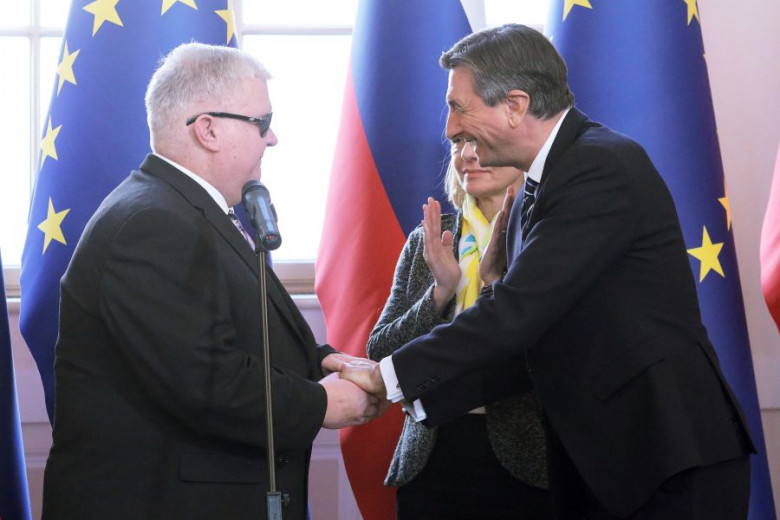 The President of the Republic of Slovenia, Borut Pahor and The President of The Union of the Blind and Partially Sighted of Slovenia, Matej Žnuderl. Photo: Daniel Novakovič/STA
The President of the Republic of Slovenia, Borut Pahor and The President of The Union of the Blind and Partially Sighted of Slovenia, Matej Žnuderl. Photo: Daniel Novakovič/STA
-
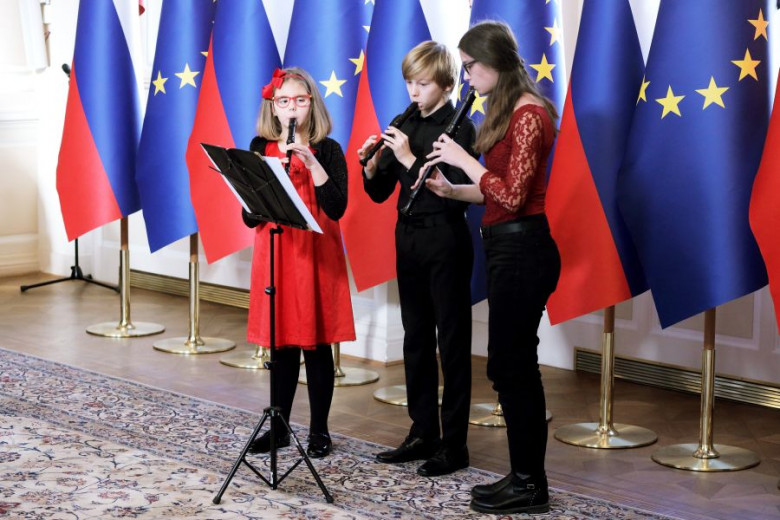 The first event to mark the 100th anniversary of the organisation for the blind and partially sighted in Slovenia. Photo: Daniel Novakovič/STA
The first event to mark the 100th anniversary of the organisation for the blind and partially sighted in Slovenia. Photo: Daniel Novakovič/STA
The Union of the Blind and Partially Sighted of Slovenia raises awareness of the importance of having access to information and services that the blind and partially sighted need. We all benefit from reading and we all need education. That is why it is so important to encourage people to develop good reading habits.
A hundred years ago the majority of blind and partially sighted people were not educated, and were dependent on their families or the help of their neighbours. As society develops, it also develops technologies and aids that can make life easier for blind and partially sighted people, and enable them to participate in society as actively as possible. However, it is also important that the attitudes and behaviours of people change. We should offer help to a blind or partially sighted person if they need it. We should not leave obstacles on pavements or on tactile paving areas. If we see someone with a white cane, we should step aside and wait patiently for them to pass. By having a better attitude towards others, each of us can contribute to making the world a better place.

